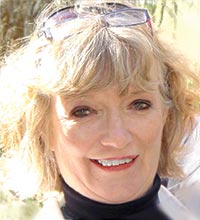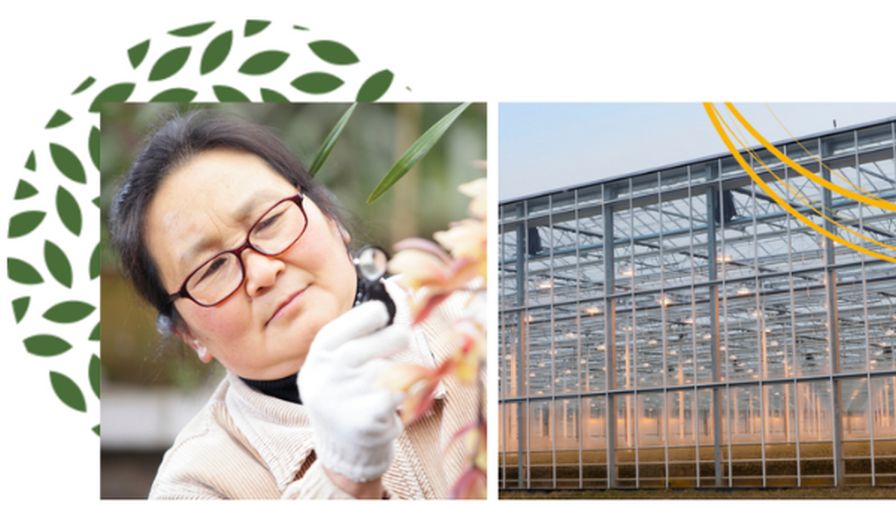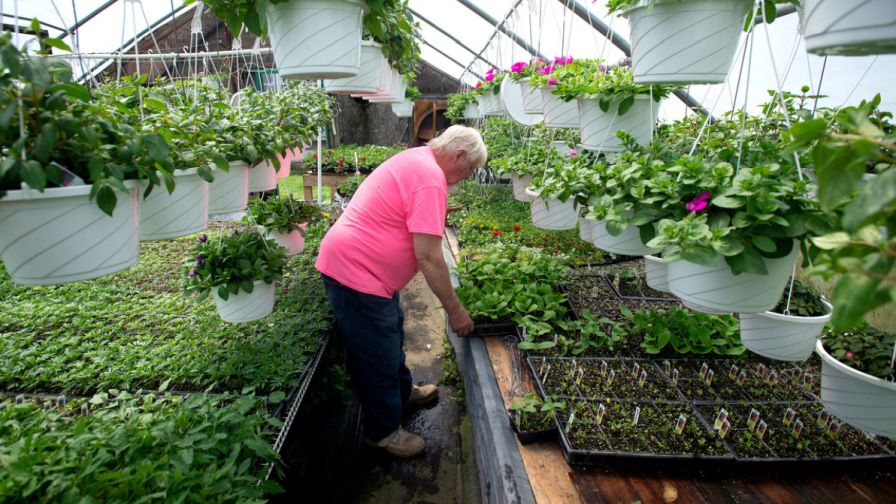SAF’s Lin Schmale Offers Lessons From An Industry Lobbyist

Lin Schmale
Around the same time that Greenhouse Grower was being launched, Lin Schmale was getting her start on Capitol Hill. Always interested in politics and history, she says she “leaped at the chance” to work in Washington, DC. Soon thereafter, while Schmale was working for a Congressman on the Hill, a friend showed her an ad for the government relations job at the Society of American Florists (SAF), saying, “This would be a great job!”
And she was right, Schmale says. For 22 years, Schmale has represented the floriculture industry on Capitol Hill, advocating on its behalf, bringing together disparate people, groups and agencies and standing her ground fiercely, and often fearlessly, on issues that directly affect the livelihood of the growers, wholesalers, retailers, and suppliers she represents.
Schmale retired from her position as Senior Director of Government Relations at SAF on January 31, after being honored with SAF’s prestigious John H. Walker Award, which was established in 1979 to honor the contributions of SAF’s former long-time executive vice president and recognize the important contributions of floral industry association executives. Despite her retirement, though, Schmale says she intends to maintain her interest in and enthusiasm for the industry and its many challenges.
Greenhouse Grower (GG) caught up with Schmale to get her take on some of the political milestones that have occurred over the years on behalf of floriculture, and she shared some of her vast wisdom about how growers can effectively play the game and get things done on Capitol Hill.
GG: What have been some of the projects/causes you have worked on with SAF?
Schmale: One of the most fun aspects of the industry has been the variety — to be involved in issues ranging from plant and flower breeding, to research funding, to immigration, to testifying before Congress, to plant pests and diseases. Specifically, whiteflies, international vegetative cuttings production, Ralstonia, methyl bromide, chrysanthemum white rust, gladiolus rust, problems with weird insects intercepted on plants or flowers at the borders, and EPA’s worker protection standards.
I have had the privilege of working with some of our industry’s greatest leaders, and they have been unfailingly patient, kind, and willing to share their knowledge with an enthusiastic but uninformed neophyte. I also had the huge advantage of working with some of the world’s outstanding entomologists, pathologists, and horticulturists.
GG: What are some of the victories that you have helped the industry achieve in your role with SAF?
Schmale: I’m not too keen on claiming victories, because they are always the result of teamwork. Being part of the success in getting the $6.25 million Floriculture & Nursery Research Initiative has been a huge satisfaction. Industry leaders had laid the groundwork for that long before I came on the scene. And we still need to increase that funding. The fight to keep geranium cuttings coming into the U.S. was probably the most difficult, but we had incredible support from some of the world’s top plant pathologists, a great industry, and interested and forward-thinking regulators at APHIS. The introduction of the Q-Biotype whitefly also threatened to be a major crisis, but thanks to industry, government, and top entomologists’ cooperation, we have been able to deal with it.
GG: What are some ongoing industry challenges that you have worked on over the years?
Schmale: The challenges brought about as a result of increased globalization of trade have really been the underlying theme, and they are going to continue. And of course, the current problems facing the industry around the use of neonicotinoids and pollinator health are huge and challenging.
GG: What are some issues you see impacting or clouding the future of floriculture?
Schmale: Funding for research. Land grant universities and Extension agents are essential in helping growers to address problems — and both continue to face serious funding challenges. Public fears and misperceptions, particularly about the industry’s use of chemicals, as we have seen in the current bee controversy, can have a big impact, leading to unforeseen, and perhaps undesirable, consequences, like a diminished ability to use IPM and beneficials. And, of course, the ongoing issue of immigration reform is major, and is unlikely to be resolved soon.
Our society is more complex, people are exposed to lots of opinions masquerading as fact, and we need to be effective in letting the world know how much the green industry contributes to people’s well-being and happiness.
GG: How can grower voices help solve some of these issues?
Schmale: The industry has to tell its own story. Growers have to work together, and with their allies in government and academia, to have the best message possible, and to get that message out. Clearly, the trade press is an enormous help in that effort. Everyone involved in the industry has a role to play. It can’t just be left to a few well-known leaders. Taking part in your trade association, in your local community efforts, in being aware of developing problems and of new scientific advances, even just when you talk with your neighbors, is important. Growers are the best voices the industry has — if they are aware, informed, and active.
GG: What tricks of the trade have you learned, that you’d like growers to know about when working with politicians?
Schmale: Politicians are human, and they respond to attention and involvement. You have to cultivate a relationship with them, and it takes time and effort.
They rely heavily on their staffers for the facts. So getting to know staff, both in the district offices and in Washington, is absolutely critical.
They are interested in learning about your business. Tours of your business, preferably with opportunities for photographs with beautiful plants or flowers, provide an ideal way to educate them (and/or their staffers). Try to paint a picture of what you do, how your business is important to the community, and why knowing you is important to them.
The arts of compromise and reason are important. They seem to be overcome, currently, by the art of big talk. I have found that facts, presented in a reasonable way and with a willingness to negotiate, will get you much further than just staking out a position and trying to defend it. Usually by working together, and sticking to the facts, some kind of solution can be found.
Many politicians will try to tell you that they delivered flowers when they were in high school. For some reason, they seem to think that gives them a knowledge of the industry. You just need to smile and stay on your message.
Make sure you are a player in your local community — and in the national community of floriculture, as well. Join SAF and come to Congressional Action Days, to the Pest & Production Management Conference, to the convention, and get to know your “extended family” of floriculture. You will never regret it.
GG: What advice can you give to the younger generations in floriculture? How can they impact change in this industry?
Schmale: Make friends, and be a friend. Be eager to learn, especially about science. Form your own opinions, but be sure that your sources are factual. Love flowers and plants and people, and learn from all of them! And remember to laugh. Life is short!










